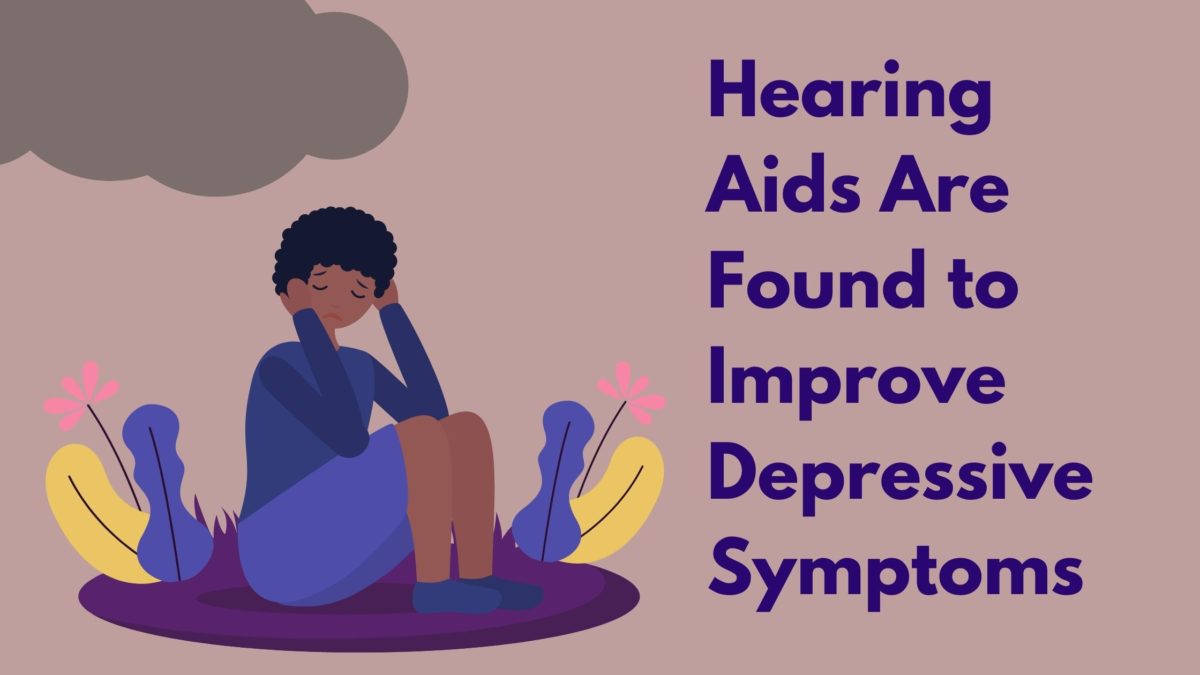- Common Hearing Aid Problems & How to Fix Them - June 14, 2021
- Why People Avoid Treating Hearing Loss — and Why You Should Schedule a Hearing Test! - May 21, 2021
- Common Hearing Aid Problems & How to Fix Them - May 14, 2021
It’s no secret that having hearing loss makes it difficult to connect, keep a job, and maintain good relationships with those you care about. Hearing loss has been related to various adverse health effects, including lower quality of life and a faster cognitive impairment rate, which may lead to dementia or Alzheimer’s disease. However, did you know that hearing loss has been related to depression and that treating hearing loss with hearing aids can significantly reduce depressive symptoms?
The scourge of depression
Every year, more than 14 million Americans are affected by major depressive disorder. While it might seem that seniors are more susceptible to depression, the average age of onset is only 32. Fatigue, loss of appetite or overeating, lack of stamina, and abrupt mood changes are some of the symptoms of depression to look out for in yourself and others.
You may be suffering from depression if you’ve been feeling withdrawn, nervous, or discouraged. Another symptom is a sense of hopelessness that interferes with accomplishing everyday tasks or a sense of worthlessness and helplessness.
The connection between hearing loss and depression
If you’re not sure what’s causing your depression, it’s time to get your hearing checked. Hearing loss affects the ability to connect effectively and receive social support from friends and loved ones, making it a risk factor for depression. You run the risk of feeling lonely and alienated.
People who have untreated hearing loss, including moderate hearing loss, are more likely to have interpersonal issues, depression, and mental health issues. Hearing loss can be a very isolating and stressful experience, making it difficult to connect with friends and loved ones and maintain close relationships with those who matter the most.
Your social life suffers as well, and you can find yourself sitting at home alone rather than going out to dinner with friends downtown and being humiliated that you can’t hear or react appropriately. According to James Firman, president of the National Council on Aging, “People with hearing loss, especially those who do not use hearing aids, have a harder time communicating with others, whether in the family, at social events, or at work.”
Emotional distress, anxiety, irritability, social isolation, and depression are all related to hearing loss. Untreated hearing loss has an effect on your relationships, social life, and professional life. Many people who suffer from hearing loss experience feelings of loneliness or hopelessness, which puts them at risk of social alienation and depression.
Hearing loss treatment can banish depressive symptoms.
Hearing loss and depression are related, and researchers at Johns Hopkins University investigated how treating hearing loss would impact mental health. They analyzed data from more than 100 seniors who had both hearing loss and depression who were in the process of using hearing aids or a cochlear implant to treat their hearing loss.
They discovered that depressive symptoms were significantly reduced after 6 months of using hearing aids. Better social interactions and an enhanced quality of life were identified. They also mentioned that they had improved mental health, gained self-confidence, and had far fewer depressive symptoms. Many of the participants who continued to wear their hearing aids continued to benefit. Hearing aids helped the participants with the most severe depressive symptoms, indicating that even those with extreme depression might benefit from treating their hearing loss.
Hearing is everything
If you’ve been having trouble hearing or are concerned that your hearing loss affects your mental health, contact us for a hearing evaluation. We’ll help you get to the root of the problem and determine if your hearing loss is contributing to your depression.
Treating your hearing loss is one of the best things you can do for your mental health. Our team of hearing professionals will work with you to find the best device to enhance your contact with loved ones, restore your social confidence, and improve your overall quality of life.

